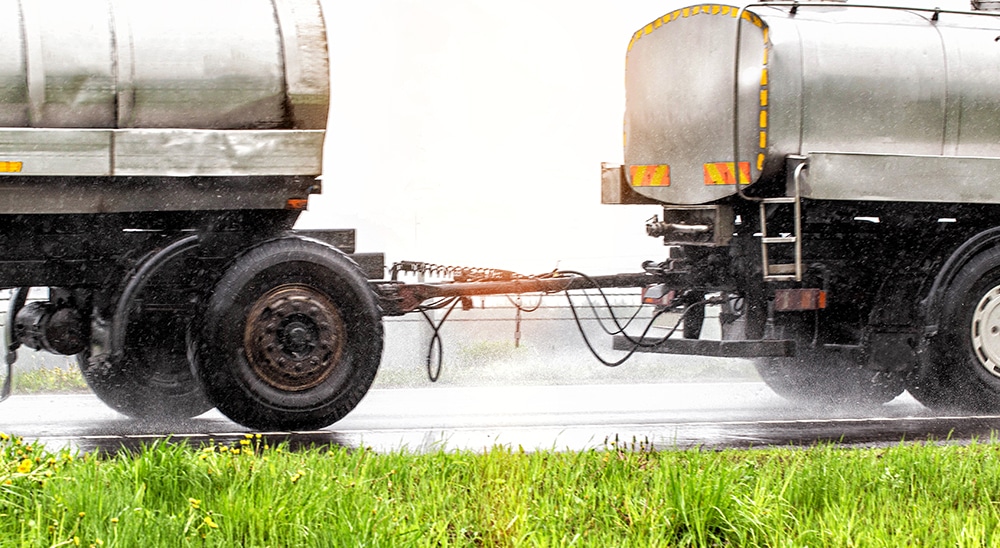How Do Defective Hitches Cause Truck Accidents?

Most of us drive alongside large trucks on a daily basis, no matter whether we only navigate city streets here in Jackson or highways and major interstates. While sharing the road with truckers makes some of us uncomfortable for various reasons, one danger you may not often consider is the prospect of a truck having a defective hitch.
Defective hitches can cause truck accidents and catastrophic ones at that. Throughout the remainder of this article, we’ll explore what a hitch’s role is, how it might become defective, and how such a phenomenon may result in a crash.
What Purpose Does a Truck’s Hitch Serve?
A hitch connects the hauling vehicle, like an 18-wheeler’s cab, to another towed automobile or trailer.
Smaller trucks, like pickup ones, have ball hitches that allow them to drag a trailer behind them. Semi-trucks’ hitches, also known as fifth-wheel couplings, feature a stronger horseshoe and pin connector. It allows for some movement, a critical feature for hauling a longer trailer and heavier load for significant distances.
Causes of Defective Hitch Connections
One of the primary reasons why hitches or couplings fail is because of lax inspection and as-needed repairs on them.
How Pre-Trip Inspections Could Reduce Hitch Failures
U.S. Department of Transportation regulations require truckers to perform pre-trip inspections on their tractor-trailers. One of the many different components truckers are supposed to inspect before taking off on any trip and every 24 hours they’re out on the road is their coupling or hitch system.
This inspection is most easily performed when truckers haven’t connected their cabs to the trailer they’re planning to haul. An inspection of its pin is particularly important as its integrity tends to deteriorate with wear and tear and a reduction in lubrication caused by the following:
- Regularly carrying heavy loads
- Overloading a truck
- Becoming involved in an incident that puts strain on the coupling (such as a jackknife accident)
Truckers connect with the trailer carrying their load by backing up their trucks in the direction of the load they’re planning to haul to establish a solid coupling between the tractor and trailer. It’s easiest to see whether there’s a problem with the different components separately and then as they join together (are coupled).
Parts used to couple the tractor and trailer don’t only become weak with use but also with age and exposure to elements. Accidents can bend them out of shape. These factors can cause locking mechanisms not to perform as they should, thus resulting in separation.
Some fleet companies or owner-operators don’t take the preventative measures necessary to detect or repair problems due to the simple fact that doing may cut into their profit margins. Truckers can fail to perform pre-trip inspections on their tractor-trailers’ hitches for the same reason.
Accidents That May Result From Defective Hitch Connections
There are three primary types of truck collisions caused by defective hitch connections, including:
Head-on Collisions
One of the more common accidents that can result from a hitch failing is that the towed load may become loose, causing it to travel into oncoming traffic, potentially colliding with other motorists’ vehicles.
Rear-end Crashes
These often happen when truckers (and even other motorists) who find themselves towing a load behind them are forced to quickly apply their brakes. Doing so may cause the receiver hitch coupling to fail, resulting in an impactful rear-end collision.
The force of the impact may be so strong that it not only causes a load to become dislodged, which could send it into oncoming traffic, but it may also propel the vehicle and its load forward into the direction of the automobile in front of it.
Jackknife Incidents
Jackknife accidents involve a tractor-trailer assuming an “L” or “V” formation—which can leave the entirety of the truck strewn about multiple lanes (and even cause it to travel into the center median or oncoming traffic, depending on the roadway’s design).
Accidents like these are often caused by tire traction issues (due to weather). However, they may also be caused by:
- Tire blowouts
- Speeding and abrupt braking
- Oversteering
- Taking turns too aggressively
- Poor tractor-trailer alignment
A hitch or coupling connection can easily become dislodged or damaged amid a jackknife incident, causing further physical damage and associated injuries.
Injuries That May Result From Defective Hitch Accidents
Since crashes caused by defective hitches can result in many different types of accidents, it can be challenging to come up with a generalized list of the injuries they may leave motorists with.
The uncoupling of hitches that results in jackknife accidents may cause motorists to endure crush injuries, including blunt force trauma, bone fractures, lacerations, or amputations. Rear-end crashes caused by hitches that fail may result in spinal cord, traumatic brain, or soft tissue injuries, such as whiplash. A head-on crash can result in any combination of the aforementioned injuries.
Why You May Need an Attorney’s Help After a Truck Accident
As hinted at above, there can be a lot of passing the buck, so to speak, when it comes to at-fault motorists or truckers, their employers, or their insurers admitting or accepting liability.
The attorneys at Pittman Roberts & Welsh, PLLC know the tactics these parties use to avoid having to foot the bill for an injured party’s costly medical expenses or deceased individual’s funeral and related damages. We want to help you recover what you deserve. Schedule a meeting with us so we can determine if you have a valid claim under Mississippi law.







